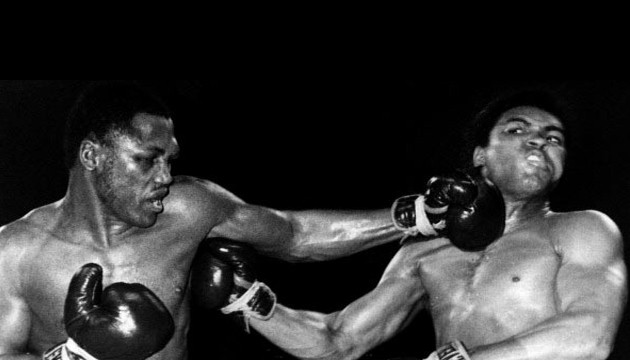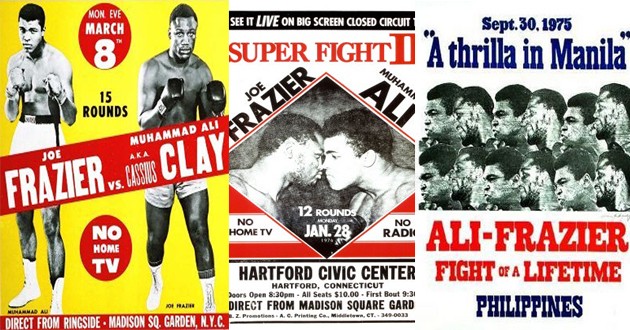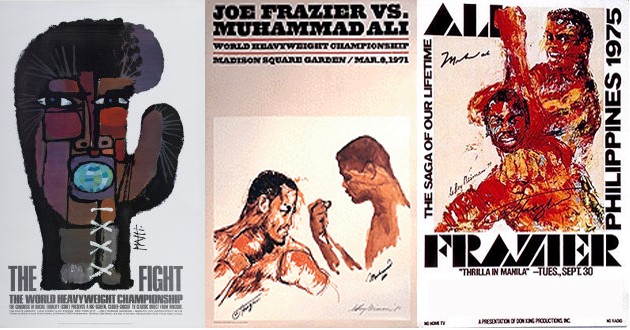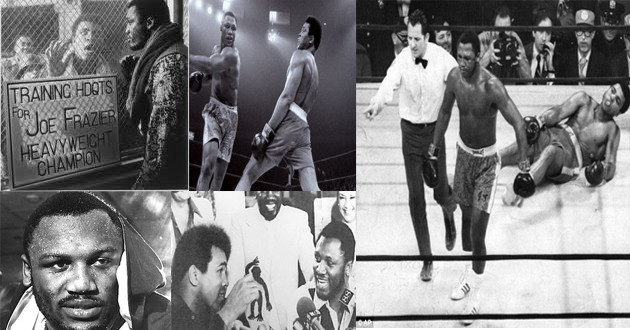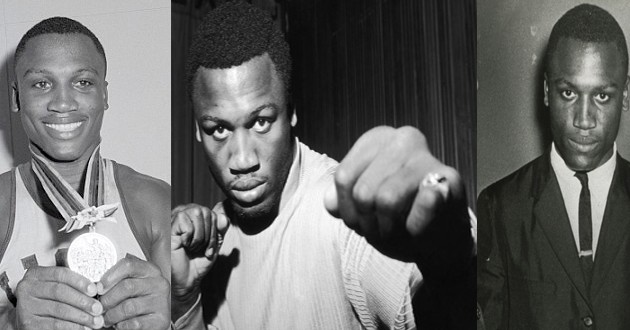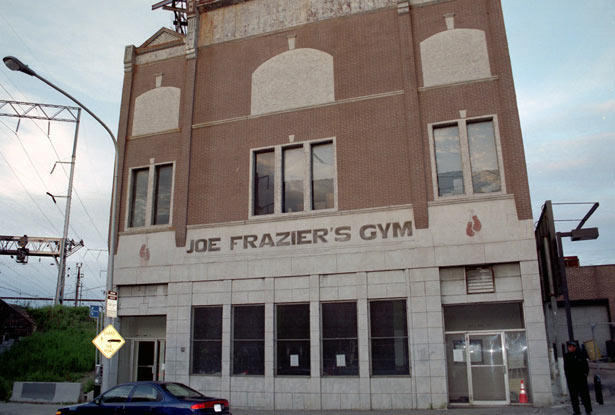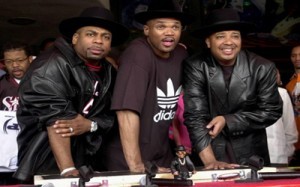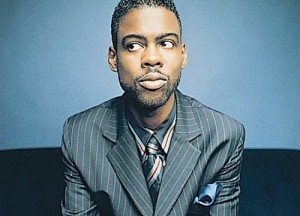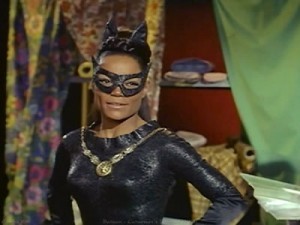Joe Frazier’s life, in and out of the ring, was indelibly tied to the man with whom he had an often poisoned relationship – Muhammad Ali.
Ali and Frazier, who on Monday, November 7, 2011 lost his toughest fight of all to liver cancer aged 67, were at the vanguard of the heavyweight division’s heyday throughout the 1970s.
Their trilogy of fights had the world transfixed in a way that is almost impossible to imagine today. Frazier, the quiet former farmhand from South Carolina, was the first man to silence the loquacious Ali in the “Fight of the Century” at Madison Square Garden in 1971. Rarely can a hyped sporting event have lived up to its billing with interest. ‘Smokin Joe’s unanimous 15-round defeat of Ali was watched by an estimated global television audience of 300 million, with Frazier’s classic left hook to floor Ali in the 15th round felt in living rooms and bars around the world.
Ali took his revenge in the rematch back at the Garden in 1974, with their third meeting coming the following year in the ‘Thrilla in Manila’. It was in this epic, brutal slugfest in crippling conditions that Frazier cemented his place as one of the greatest heavyweight champions the ring has ever known, his trainer Eddie Futch having to step in to halt the show after the 14th round. Despite being barely able to stand on his own two feet, Frazier begged to come out for the 15th round. Ali, in his inimitable way, described the experience as “the closest thing to dying that I know of”.
This may have been the last time they raised their gloves in anger at each other but their sparring continued out of the ring for years after. Frazier, bitter at articulate Ali’s personal taunts and jibes and mind games – was unable to shed the scars of being called names like ‘Uncle Tom and gorilla’, once suggesting that his old nemesis’s struggles with Parkinson’s were God’s way of punishing him for his behaviour out of the ring.
But in 2009 Frazier told Sports Illustrated that he had forgiven Ali, who was one of the first to pay tribute to his legendary old rival. “The world has lost a great champion. I will always remember Joe with respect and admiration,” Ali said in a statement. “My sympathy goes out to his family and loved ones.”
Frazier was seduced by boxing from the moment he watched his first fight as a youngster on the black and white television his parents Rubin and Dolly had bought at their home in Beaufort, South Carolina. He turned pro in 1965 after a successful amateur career climaxed by gold at the Tokyo Olympics in 1964 where he clinched the title despite nursing an injured thumb in the final bout. The bell was to sound on his fabled career with 32 wins (27 knockouts), four losses and one draw.
Aside from Ali, Frazier’s other two reverses came against George Foreman who bid farewell in a poignant Twitter message: “Good night Joe Frazier. I love you dear friend.”
A giant in the ring, Frazier enjoyed less success away from it, suffering financial hardship after losing many millions he made in the 1970s through poor handling of his investments. He owned and ran a gym in his native Philadelphia until 2009, and found solace in music, releasing several soul-funk records under the Joe Frazier and the Knockouts banner.
As to the sport he towered over Frazier himself was disillusioned with the state of modern day boxing, telling the BBC in 2006: “I don’t see anyone who’s going to bring back the glory days. “All these crazy sanctioning belts they’ve got – do you know who the world champion is?”
The youngest of seven sons he leaves nine children – two from a former girlfriend and seven with his divorced wife Florence.

